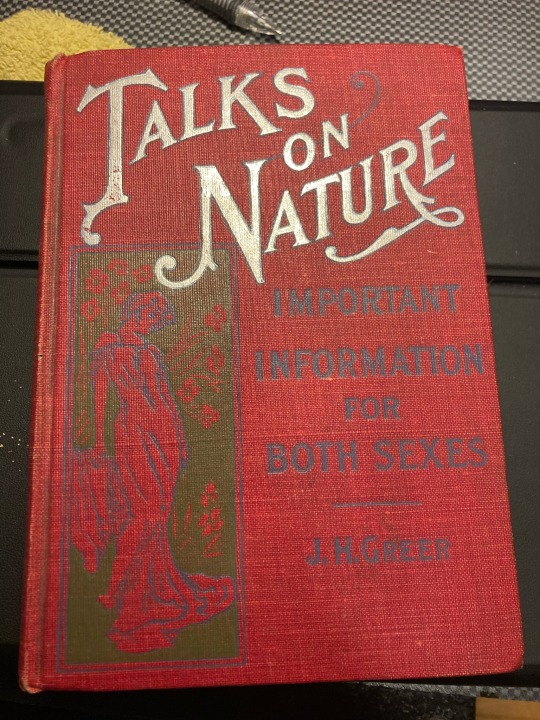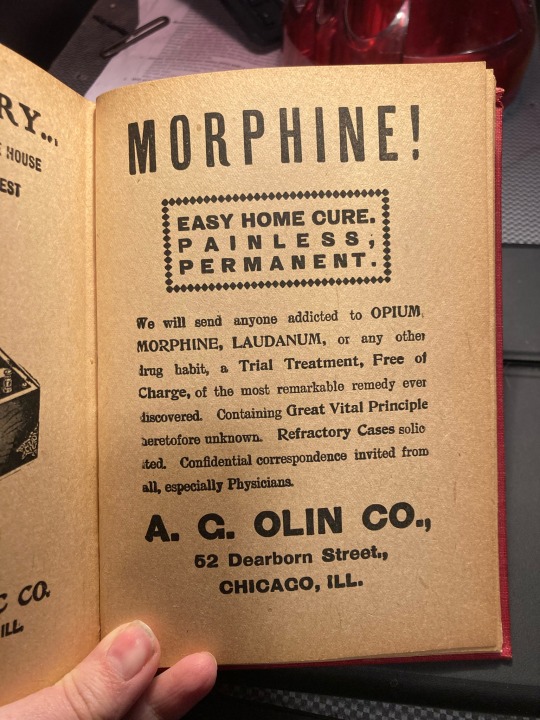#1900s literature
Explore tagged Tumblr posts
Text
Oh to be a pretty boy in the 1900s.
#if only#gender crisis#1900s aesthetic#20th century#genderfluid#romanticism#dark academia#classic academia#old aesthetic#1900s literature#1900s#dark romantica#kill your darlings#dead poets society#the secret history#maurice#books and literature#chaotic academia#dark romanticism#films#aesthetic#wishes#i wish
407 notes
·
View notes
Text
I will forever be mad at Netflix for cancelling Season 4 of Anne with an E.
We didn't get the closure we deserved & now we're unable to move on and can't stop thinking about all the possibilities that'd have happened in season 4.
#anne with an e#anne x gilbert#anne of green gables#shirbert#netflix#netflix series#novel#love story#period drama#red hair#romance#lovers#books & libraries#anne shirly cuthbert#1900s literature
29 notes
·
View notes
Text

Not Theirs the Cypress-Arch by Clark Ashton Smith
#not theirs the cypress-arch#clark ashton smith#quote#typography#literature#poetry#aesthetic#dark academia#light academia#romantic academia#weird fiction#american literature#1900s literature#20th century literature#north american literature
15 notes
·
View notes
Text
can yall please explain to me the point of Albert Camus’s The Stranger? i read it and thought it was a pretty good book, but i felt like i had to be missing something. it’s so hyped up in academia circles but it didn’t really seem to stand out much from other classics. what am i missing?
#dark acamedia#light academia#green academia#academia#dark academia aesthetic#albert camus#camus#the stranger#french academia#french literature#classic literature#literature#algerian literature#20th century literature#1900s literature#absurdist fiction#existentialism#existentialist fiction
6 notes
·
View notes
Text
“A man is like a novel: you don't know how things will end until the very last page. Otherwise, it wouldn't be worth reading...”
— Yevgeny Zamjatin, We

“Человек – как роман: до самой последней страницы не знаешь, чем кончится. Иначе не стоило бы и читать…”
— Евгений Иванович Замятин, Мы
#classic books#bookblr#books#2022 genre bingo#genre: dystopia#book quotes#quote#quotes#on life#life quotes#currently reading#current read#yevgeny zamyatin#we#classic literature#literary quotes#russian literature#dystopian literature#1900s literature#soviet literature#readblr#Евгений Иванович Замятин#Мы#русская литература#russian langblr#russian language#русский язык
39 notes
·
View notes
Text
I have this bad habit of buying very old books. Generally, the books will not have aged well, as far as societal norms and terminology, but they also have some on-the-money points. (Like in this etiquette book I have, it says Americans shouldn't tip, because employers should pay their employees a good enough wage to live off of.)
Let me introduce you to "Talks on Nature: Important Information for Both Sexes" by JH Greer.

I haven't read a lot of it, but there is a bit about contraception. He's in favor of contraception and he does support women not having to have children they don't want, but he also has some eugenicist talking points.
He also ties in letters from other publications and this one struck me.
From "The Strike of a Sex" by an author Greer doesn't name (*side eyes the man*) he puts this in:
[I added paragraphs so it's easier to read. This was all one paragraph]
"Poetically speaking, children are the rose-buds of life; practically they are the torments of existence. I speak from a long and miserable experience.
I am now, at thirty-five, the mother of seven children, the eldest, nine years, the youngest, nine weeks. I am called their mother, but I am really their slave. I was once a careless, happy, joyous girl, but my children have made me a fretful, nervous, care-worn woman.
All the romance of my life has gone, the poetry of existence changed to the dullest prose. I live in the midst of quarreling children, instead of enjoying the society of congenial friends.
From Monday morning to Saturday night I am working for my children, yet they show now the slightest and make not the devotion lavished upon them. Sick or well I am compelled to live in a state of noise and confusion distracting to my nerves and detestable to all my finer feelings.
I feel - I know I am made for a better, a higher destiny than to be the helpless victim of seven domestic despots. Had I known that marriage would have made my life what it is, I never would have married."
There's also some points he makes, when talking about prostitution, that sound like he read Marx.
Basically complaining about the shrinking middle class and going on tirades about the obscenely wealthy.
Besides all the interesting socio-political content, I mostly bought it for the advertisements in the back:

A $10 battery. (~$316 today)

MORPHINE!

Oh, look, an illustration of the author, Dr. JH Greer in an ad about his book about women's health.
BTW, $2.00 in ~1910 is equal to like $63 in 2023.
It's kind of interesting, and super fucking sad, how history repeats itself.
8 notes
·
View notes
Text
"If I were well-to-do / I would put roses on roses, and cover your grave / With multitude of white roses, and just a few / Red ones, a bloody-white flag over you."
D.H. Lawrence, Birthday (1914)
#quotes#literature#lit#poetry#spilled ink#1900s poetry#1900s literature#d h lawrence#dh lawrence#d. h. lawrence#english poets#english writers#english authors#british authors#british poets#british writers#british poetry#british literature#1910s literature#1910s poetry#queer authors#queer writers#queer poets#grief poems#grief poetry#birthday poems#death poetry#death poems
2 notes
·
View notes
Text
y'all i found this annotated copy of some book called "Thaïs," from 1922 in Czechia and it's insane???
Like not only is it an entertaining book but like, the annotations are insane sometimes (in a way where i crumple to the ground and ponder the constant connection of humanity)
1 note
·
View note
Text

Mistletoe Necklace
Two tone gold, pearl
French
c. 1900
Art Nouveau
#dark academia#light academia#classical#academia aesthetic#escapism#academia#books and libraries#classic literature#books#architecture#object#necklace#mistletoe#art nouveau#french#1900s#20th century#gold#pearl#royal core#cottage core#aesthetic#academic#aesthetics#artistic#jewelry#jewellery#mood#vibe#tumblr
1K notes
·
View notes
Text
Oh, to be a boy.
#Women are incredible#We really are#But I don’t fucking want this#Idk I’m Having a shit day#thoughts#gender stuff#gender identity#gender crisis#trans stuff#gender#gender envy#pretty boys#romanticism#chaotic academia#i’m tired#dark academia#1900s aesthetic#1900s literature#1800s aesthetic#queer#francis abernathy#remus lupin#remus john lupin#henry winter#god dammit#aesthetic
28 notes
·
View notes
Text

A New Wonderland by L. Frank Baum
1900
Artist : Frank ver Beck
#l. frank baum#frank ver beck#1900#children's literature#fairy tale#children's books#vintage illustration#fairy story#children's book#fairy tales#old illustration#fairy
798 notes
·
View notes
Text

Not Theirs the Cypress-Arch by Clark Ashton Smith
#quote#literature#typography#poetry#clark ashton smith#not theirs the cypress-arch#aesthetic#dark academia#light academia#romantic academia#20th century literature#american literature#1900s literature#weird fiction#quotes
4 notes
·
View notes
Text

Franz Kafka
1K notes
·
View notes
Text
“You are afraid of it, because it's stronger than you; you hate it, because you are afraid of it; you love it, because you cannot subdue it to your will. Only the unsubduable can be loved.”
— Yevgeny Zamjatin, We

“Боишься – потому что это сильнее тебя, ненавидишь – потому что боишься, любишь – потому что не можешь покорить это себе. Ведь только и можно любить непокорное.”
— Евгений Иванович Замятин, Мы
#literary quotes#bookblr#books#book quotes#quote#quotes#love quotes#romantic quotes#currently reading#current read#readblr#yevgeny zamyatin#we#russian literature#dystopian literature#classic books#classic literature#1900s literature#soviet literature#on love#on longing#Евгений Иванович Замятин#Мы#русская литература#russian langblr#russian language#русский язык#funniest thing is I'm not reading it in either language. my copy is in Italian#2022 genre bingo#genre: dystopia
16 notes
·
View notes
Text
Mina Harker's comments about The New Woman in Dracula have generated much discussion. Among her comments, she says: "Some of the “New Women” writers will some day start an idea that men and women should be allowed to see each other asleep before proposing or accepting. But I suppose the New Woman won’t condescend in future to accept; she will do the proposing herself. And a nice job she will make of it, too! There’s some consolation in that."
The topic of women proposing gets explored in another Stoker novel, The Man or The Gates Of Life (1905)
The main character is a young woman, Stephen Norman. She's very outspoken about women's right to make choices, including proposing to men. Her foil is her Auntie, who is a conventional woman. Here, Stephen claims to her Auntie that if a woman isn't married to the man she wants, it's her own fault.
"Her fault? My dear, what if no man asks her?" This seemed to her own mind a poser. "Still her own fault! Why doesn’t she ask him?" Her aunt’s lorgnon was dropped in horrified amazement. Stephen went on impassively. "Certainly! Why shouldn’t she? Marriage is a union. As it is in the eye of the law a civil contract, either party to it should be at liberty to originate the matter. If a woman is not free to think of a man in all ways, how is she to judge of the suitability of their union? And if she is free in theory, why not free to undertake if necessary the initiative in a matter so momentous to herself?" The old lady actually groaned and wrung her hands; she was horrified at such sentiments. They were daring enough to think; but to put them in words! . . . "Oh, my dear, my dear!" she moaned, "be careful what you say. Some one might hear you who would not understand, as I do, that you are talking theory." Stephen’s habit of thought stood to her here. She saw that her aunt was distressed, and as she did not wish to pain her unduly, was willing to divert the immediate channel of her fear. She took the hand which lay in her lap and held it firmly whilst she smiled in the loving old eyes. "Of course, Auntie dear, it is theory. But still it is a theory which I hold very strongly!"
Stephen asks her Auntie why she never married (she didn't love any of her suitors, so she refused them) and if she was ever in love with a man:
"And why did you refuse them?" The tone was wheedling, and the elder woman loved to hear it. Wheedling is the courtship, by the young of the old. "Because, my dear, I didn’t love them." "But tell me, Auntie, was there never any one that you did love?" "Ah! my dear, that is a different matter. That is the real tragedy of a woman’s life." In flooding reminiscent thought she forgot her remonstrating; her voice became full of natural pathos: "To love; and be helpless! To wait, and wait, and wait; with your heart all aflame! To hope, and hope; till time seems to have passed away, and all the world to stand still on your hopeless misery! To know that a word might open up Heaven; and yet to have to remain mute! To keep back the glances that could enlighten; to modulate the tones that might betray! To see all you hoped for passing away . . . to another! . . . " Stephen bent over and kissed her, then standing up said: "I understand! Isn’t it wrong, Auntie, that there should be such tragedies? Should not that glance be given? Why should that tone be checked? Why should one be mute when a single word might, would, avert the tragedy? Is it not possible, Auntie, that there is something wrong in our social system when such things can happen; and can happen so often? "Some day women must learn their own strength, as well as they have learned their own weakness. They are taught this latter from their cradles up; but no one ever seems to teach them wherein their power lies. They have to learn this for themselves."
Stephen may have too progressive ideas, but she's still very gentle with her Auntie even while she's disagreeing, because she sees her Auntie is too scared that Stephen might get in trouble for her ideas:
"Why should good women’s lives be wrecked for a convention? Why in the blind following of some society fetish should life lose its charm, its possibilities? Why should love eat its heart out, in vain? The time will come when women will not be afraid to speak to men, as they should speak, as free and equal. Surely if a woman is to be the equal and lifelong companion of a man, the closest to him—nay, the only one really close to him: the mother of his children—she should be free at the very outset to show her inclination to him just as he would to her. Don’t be frightened, Auntie dear; your eyes are paining me! . . . There! perhaps I said too much. But after all it is only theory. Take for your comfort, Auntie dear, that I am free an heart-whole. You need not fear for me; I can see what your dear eyes tell me."
This all puts Mina's comments into perspective. Aside, Mina is an etiquette schoolteacher. And even at the start, she gradually breaks more conventions, however reluctantly, like when she chooses to let Jonathan hold her arm as they walk, over obeying to convention.
#mina harker#mina murray#stephen norman#dracula daily#related#dracula#bram stoker#gothic literature#gothlit#edwardian literature#feminism#1900s#jonathan harker
259 notes
·
View notes
Text

Fyodor Dostoevsky, Complete Letters
#dark academia#dark academia aesthetic#chaotic academia#academia aesthetic#dark#literature#academia#chaotic academic aesthetic#literacy#bookworm#just a 1900s boarding school boy with his close totally platonic friends#fyodor dostoevsky#fyodor dostoyevsky bsd#dostoevksy#bsd dostoevsky#russian literature#books and libraries#literature quotes#light academism#light acadamia aesthetic#light academia quotes#light academia#dark academia quotes#dark academic aesthetic#dark acadamia aesthetic#dark academic#dark acadamia quotes#dark academism#dark acamedia#bsd fyodor
204 notes
·
View notes